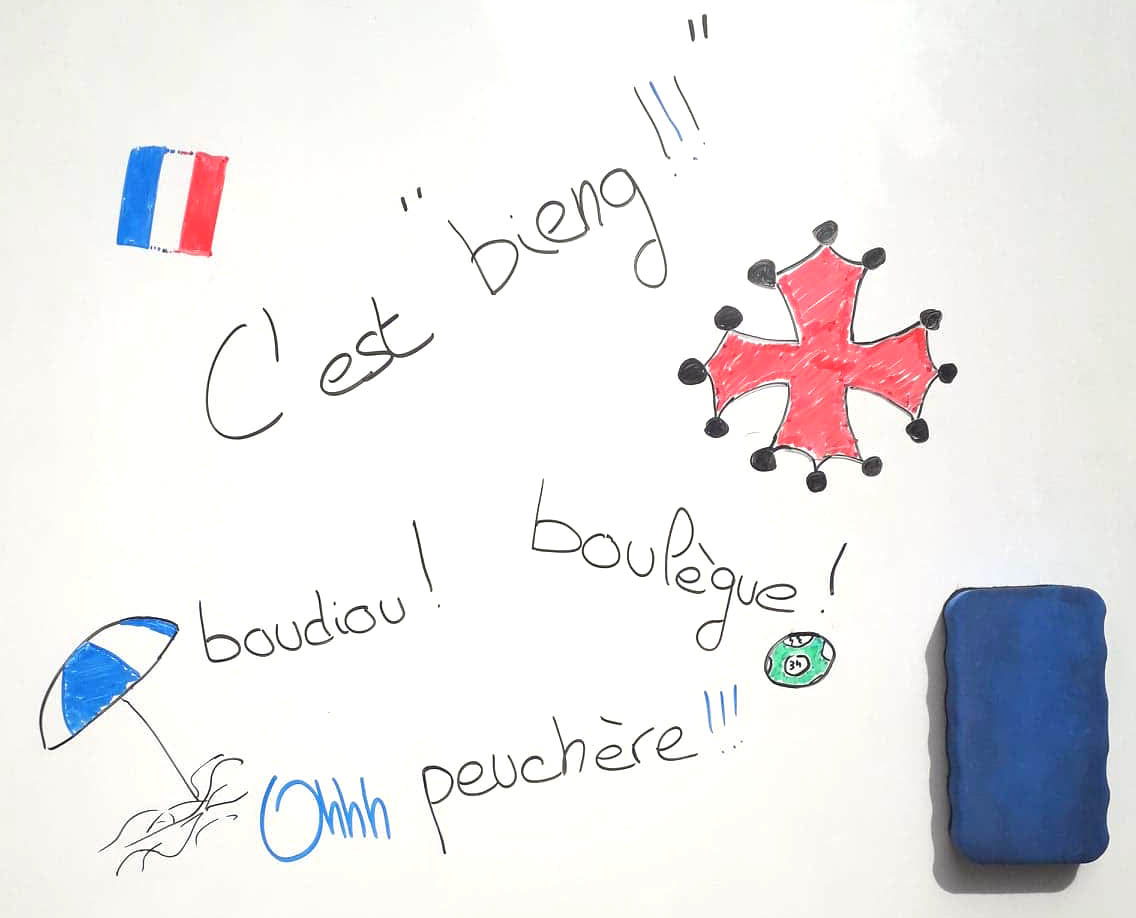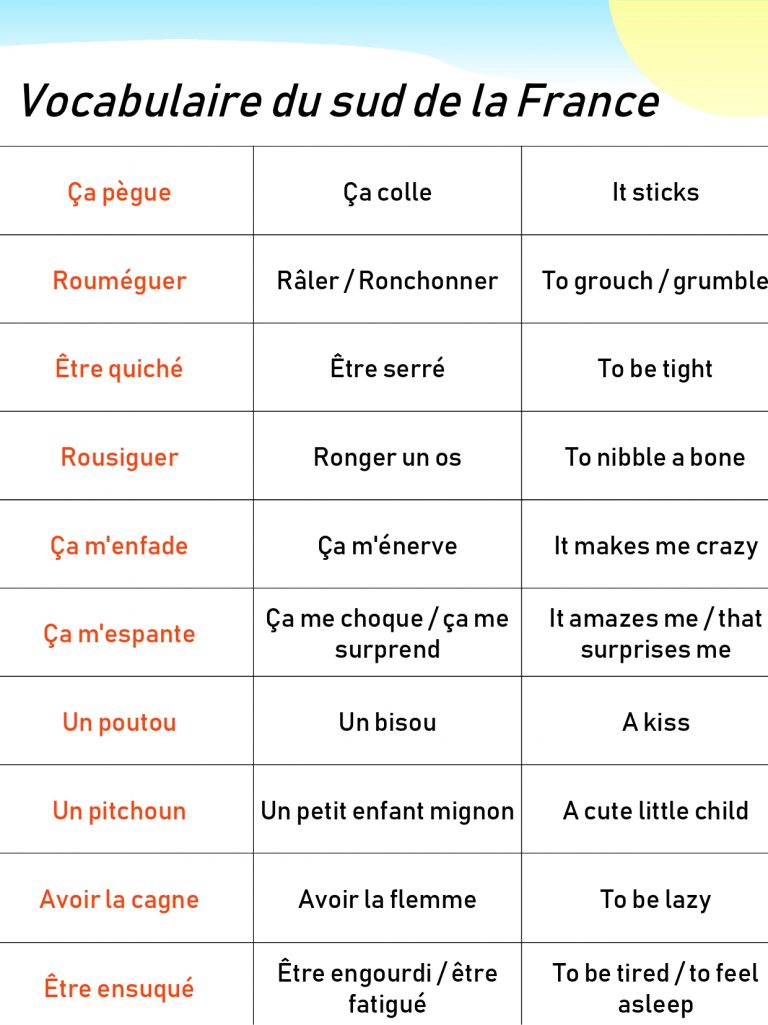In France, there are many accents that, in fact, come from the old languages or dialects of France. Before the Second World War, there were still areas where people spoke French only at school.
It is not surprising that there are still accents and terms that are characteristic of some regions today. This diversity of accent is synonymous with authenticity and makes the charm of France.

One of the favourite accents of the French is the southern accent because it is the most typical and most singing.
There is not a single accent from the south but several. We can distinguish, for example, the accent of ” Le Midi” (area of south of France, of which Occitania is a part) from the accent of Marseille.
In any case, a southern accent is quickly noticed by the French from other regions. And what about you, do you notice it?
To help you identify it, here are the 3 most remarkable differences.
1. French pronunciation and syllable strenghtening
In French pronunciation is not equivalent to writing : you learned that most word endings, especially the final “e”, are not pronounced.
If you’re from the South of France, it’s different ! What characterizes the pronunciation of the South of France is the pronunciation of the “silent e”, which often gives the impression of a tonic accent on the penultimate syllable for words ending in -e.
In addition, there is a lengthening of the syllables often at the end of the sentence as well as different rhythms and intonations.
Listen to the 2 voices : the woman has a standard accent and the man has a southern accent, from “le Midi” to be precise.
1st example : Je m’appelle Etienne, je viens de Narbonne.
2nd example : Moi c’est Joëlle, je fais de l’escalade.
Note
With the accent of "le Midi" we can distinguish the pronunciation of a male first name[Jo-el] from the same female first name [ Jo-el-lǝ].
2. Some sounds, nasal vowels are not pronounced in nasal vowels.
The nasal vowels are not pronounced in the same way. They are more open.
The sounds[ɑ̃] written “an”, “aon”,”en”. Example : “un enfant assis sur un banc
The sound [ɛ̃] written “in”, “ain” ou “aim”. And the sound [õ] written “on”. Example : Je mange du pain et bois du vin, c’est bien bon.
3. The use of southern words
The use of particular words that have their origin in Occitan. Here are 10 typical words from the south of France.

After these few explanations, can you now perceive the accent of “le Midi” in this dialogue from Le Petit Prince?
Audio 5 – From “Le Petit Prince”
– Viens jouer avec moi, proposa le petit prince au renard. Je suis tellement triste…
– Je ne puis pas jouer avec toi, dit le renard. Je ne suis pas apprivoisé.
– Ah ! Pardon. Qu’est-ce que signifie “apprivoiser”?
– Tu n’es pas d’ici, que cherches-tu?
– Je cherche les hommes. Qu’est-ce que signifie “apprivoiser”?
– Les hommes, ils ont des fusils et ils chassent. C’est bien gênant ! Ils élèvent aussi des poules. C’est leur seul intérêt. Tu cherches des poules?
– Non. Je cherche des amis. Qu’est-ce que signifie “apprivoiser”?
– C’est une chose trop oubliée. Ça signifie “créer des liens…”
– Créer des liens?
– Bien sûr. Tu n’es encore pour moi qu’un petit garçon tout semblable à cent mille petits garçons. Et je n’ai pas besoin de toi. Et tu n’as pas besoin de moi non plus. Je ne suis pour toi qu’un renard semblable à cent mille renards. Mais si tu m’apprivoises, nous aurons besoin l’un de l’autre. Tu seras pour moi unique au monde. Je serai pour toi unique au monde…
– Je commence à comprendre. Il y a une fleur… Je crois qu’elle m’a apprivoisé…
– C’est possible… Ma vie est monotone. Je chasse les poules, les hommes me chassent. Toutes les poules se ressemblent, et tous les hommes se ressemblent. Je m’ennuie donc un peu. Mais, si tu m’apprivoises, ma vie sera comme ensoleillée. Je connaîtrai un bruit de pas qui sera différent de tous les autres. Les autres pas me font rentrer sous terre. Le tien m’appellera hors du terrier, comme une musique. Et puis regarde ! Tu vois, là-bas, les champs de blé? Je ne mange pas de pain. Le blé pour moi est inutile. Les champs de blé ne me rappellent rien. Et ça, c’est triste !
